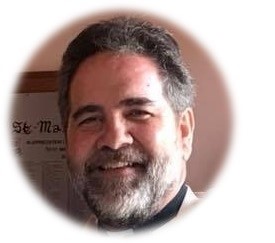Greetings my sisters and brothers,
I trust that your Lenten journey is progressing well, practicing the three main activities of this season, prayer, fasting and almsgiving. May our merciful and gentle God inspire us to give ever more attention to these as we make our way to the celebration of the Easter Triduum at the end of this month.
The last weekend of February I was privileged to lead a Silent Retreat for about 80 women. The theme of the retreat was “Being Silent with St. Joseph”. I would like to share with all of you some of the insights shared with these women in hopes that it will help you in your vocational discernment.
I began by giving three ways that we can seek to be silent. The first is was what we commonly understand as silence: the absence of noise around us. The second is possibly the most necessary silence, particularly if we hope to be living a peaceful and fruitful life, and that is silence inside of me. Quieting down my thought, emotions, ideas, plans, concerns, etc. can lead to a more centered and calm heart and mind. The third type of silence might not even seem to us to be silence at all. This is seeking to limit our activities and actions, which can bring chaos and confusing into our lives. Instead, we seek to follow the example of Mary, sister to Martha, who chose the “one thing necessary” to do: be at the feet of Jesus and listen to him. If we are able to do this consistently and with perseverance, then all of our other activities will be guided and limited by Jesus himself, seeking to do the Father’s will, like him.
After going over these three types of silence, we then considered how St. Joseph might aid us in striving to achieve each type in our daily lives.
For the first type, we have this affirmation from St. John Paul II in his Apostolic Exhortation, Redemptoris Custos:
“It is…a silence that reveals in a special way the inner portrait of the man. The Gospels speak exclusively of what Joseph ‘did.’ Still, hey allow us to discover in his ‘actions’ – shrouded in silence as they are – an aura of deep contemplation. Joseph was in daily intact with the mystery ‘hidden from ages past,’ and which ‘dwelt’ under his roof.”
Joseph was able to create an “aura” of silence by making daily contact with Jesus, the “mystery hidden from ages past”. In other words, it was quiet in the house of Nazareth so that Joseph could hear God speak through his Son Jesus.
The second type is illustrated by this following quote from the same document:
“It was from this interior life that very singular commands and consolations came, bringing him also the logic and strength that belong to simple and clear souls, and giving him the power of making great decisions-such as the decision to put his liberty immediately at the disposition of the divine designs.”
From his ability to “quiet” his own desires and plans, his own aspirations and expectations, Joseph was able to be completely disposed to the will of God, even when it went against what he had previously decided.
Finally, for the third type of silence, we can take from the citation above these beautiful words:
“the logic and strength that belong to simple and clear souls”.
This applies to Joseph precisely because he had such simplicity and clarity. We know this since he was able to hear God even in his sleep! And, when God’s will was certain, he was able to respond immediately because his mind and heart was not cluttered with so many contrary thoughts, desires and intuitions. He sought only to know and serve God…everything else was placed after this. Blessed are the pure of heart, for they shall see God”!
May St. Joseph help us to become people of silence and so, like him, be able to know God in each and every moment, to know God’s will and to carry it out promptly and completely.

Fr. Brian, OSJ




